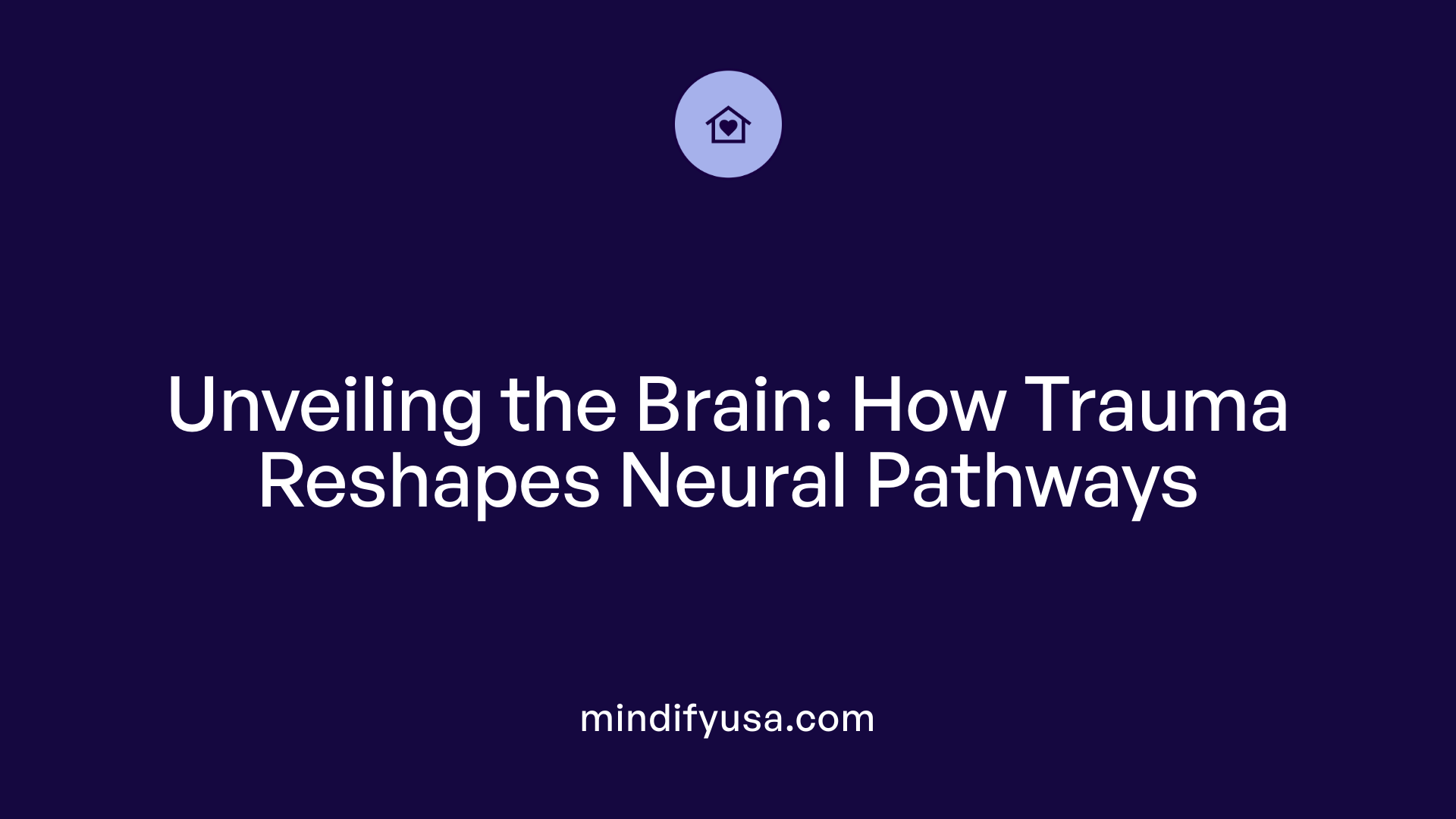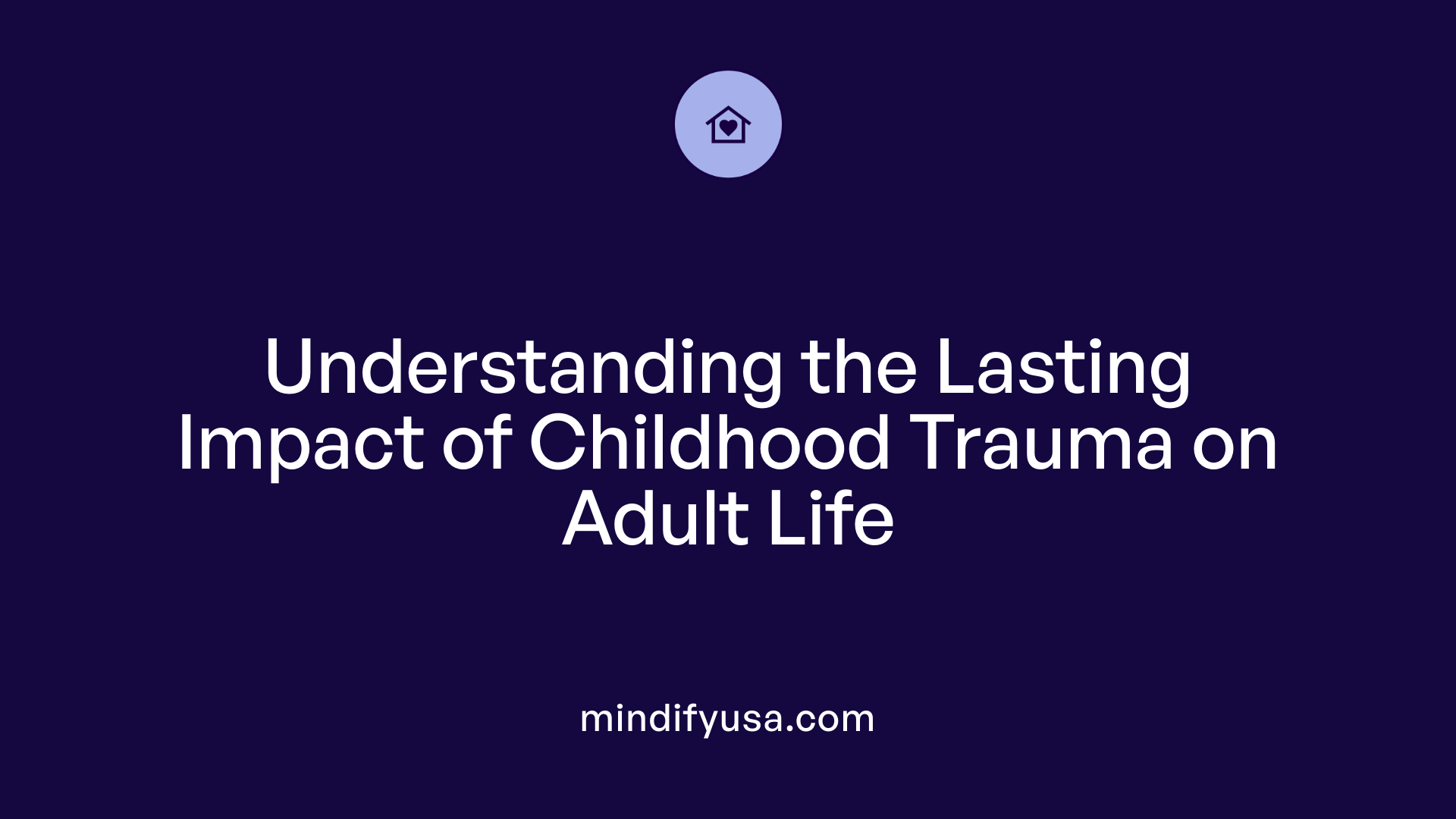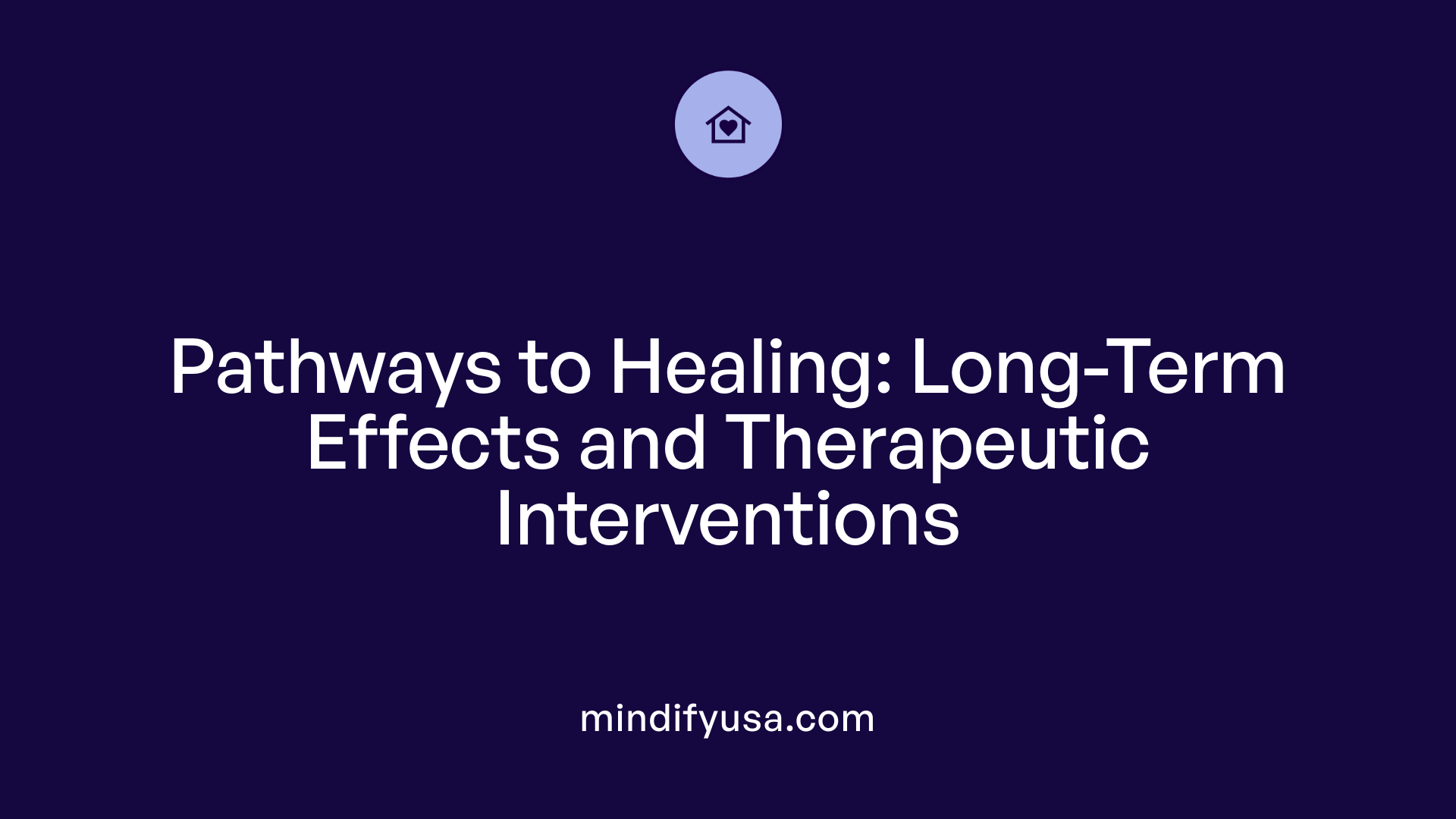Deciphering the complex ways trauma influences decision-making
Psychological trauma fundamentally alters how individuals perceive their environment, themselves, and others. Its effects extend beyond emotional suffering, deeply impacting cognitive functioning, neurobiology, and behavior, thereby influencing everyday choices and long-term life paths. This article explores the profound ways in which trauma affects decision-making processes, backed by scientific research, psychological insights, and therapeutic strategies.
Cognitive and Emotional Changes Induced by Trauma
How does trauma affect risk assessment, memory, and attention?
Trauma significantly alters how individuals evaluate danger and interpret their surroundings. One common change is increased hypervigilance, where a person constantly scans environment cues for threats. This persistent state can lead to an overestimation of dangers, making safe situations appear threatening, and risky behaviors seem less risky than they are.
Early trauma affects memory and attention by focusing encoding on specific details—like sounds or smells—while other contextual elements are poorly registered. This can cause fragmented memories that are non-chronological or incomplete. As a result, trauma survivors may struggle with focus and recalling critical information during decision-making.
Attention biases towards negative stimuli, especially in childhood trauma, contribute to heightened threat perception. Simultaneously, trauma impacts the functioning of the prefrontal cortex, which is essential for rational thinking and impulse control, leading to difficulties in maintaining balanced attention and judgment.
How does trauma influence emotional regulation and impulsivity?
Trauma often causes emotional dysregulation, where individuals experience intense or fleeting emotions that are difficult to manage. They might fluctuate between feelings of anger, shame, sadness, or numbness. This emotional turbulence impacts decision-making, often pushing choices based on immediate feelings rather than thoughtful consideration.
Impulsivity is another consequence. Traumatized individuals might react hastily to emotional triggers, engaging in behaviors such as substance use, reckless spending, or risky actions to cope or escape distressing feelings. Their decision-making becomes more reactionary, favoring short-term relief over long-term safety.
Trauma-related neurobiological changes, including heightened activity in the amygdala (the emotional alarm system), amplify these difficulties. The result is a pattern where decisions are often driven by an exaggerated threat response and emotional surges, rather than a rational assessment of risks.
How can understanding these effects improve support and recovery?
Recognizing how trauma influences cognition and emotion helps in tailoring interventions. Support from mental health professionals using approaches like Cognitive Behavioral Therapy (CBT) or Eye Movement Desensitization and Reprocessing (EMDR) can help regulate emotions and rebuild cognitive functions.
Practicing patience, self-compassion, and taking time for important decisions also aid survivors. Enhancing awareness of these trauma-induced patterns allows individuals to develop coping strategies, improve decision-making skills, and regain trust in their judgments.
| Aspect | Effect of Trauma | Potential Strategy for Support | Additional Notes |
|---|---|---|---|
| Risk assessment | Overestimation of danger, avoidance, risky behaviors | Grounding techniques, therapy | Aids in better hazard evaluation |
| Attention and memory | Fragmented memories, hypervigilance | Mindfulness, cognitive exercises | Improves focus and recall |
| Emotional regulation | Instability, intense emotions | Emotional regulation skills, support groups | Enhances emotional resilience |
| Impulsivity | Hasty decisions, risky behaviors | Delayed decision-making, therapy | Promotes thoughtful choices |
Understanding these interconnected effects emphasizes the importance of comprehensive trauma-informed care. It enables survivors to rebuild healthier cognitive and emotional processes for better decision-making and overall well-being.
Neurological and Biological Signatures of Trauma
 What are the neurological and biological effects of trauma on the brain and behavior?
What are the neurological and biological effects of trauma on the brain and behavior?
Trauma causes profound changes in the brain's structure and function, affecting how individuals process emotions, memories, and threats. Key regions impacted include the hippocampus, prefrontal cortex, and amygdala. The hippocampus, essential for memory formation, often becomes smaller or less active after trauma, contributing to fragmented memories and dissociation. The prefrontal cortex, responsible for decision-making and impulse control, shows reduced activity, impairing rational judgment and emotional regulation.
Meanwhile, the amygdala—the brain's threat detection center—becomes hyperactive, heightening fear and vigilance. This shift fosters a state of hyperarousal, where individuals are easily triggered by sensory cues associated with past trauma.
Traumatic experiences also disturb neurochemical systems like the hypothalamic-pituitary-adrenal (HPA) axis. Elevated or irregular cortisol and norepinephrine levels can damage neurons, especially in stress-sensitive regions, further disrupting emotional regulation and memory.
Moreover, trauma influences brain connectivity, weakening communication pathways between regions responsible for regulating fear and emotions. These changes can cause persistent hypervigilance, emotional dysregulation, and difficulty in forming trusting relationships.
Research indicates that trauma may induce epigenetic modifications—changes in gene expression—that have long-term effects on mental health. These biological alterations are reflected in behaviors such as avoidance, impulsivity, and difficulties with stress management.
Understanding these neurobiological signatures highlights the importance of trauma-informed approaches in treatment, aiming to repair and optimize brain function, and to support behavioral and emotional recovery.
Early Life Trauma and Long-Term Mental Health Outcomes

How does childhood and early life trauma influence adult decision-making and mental health?
Early trauma experienced during childhood can have lasting effects on both mental health and decision-making abilities. These adverse experiences often disrupt normal brain development, especially in areas like the prefrontal cortex, which is responsible for reasoning, planning, and impulse control. The amygdala, which processes emotions and threat detection, can become hyperactive or dysregulated.
As a result, trauma survivors tend to exhibit increased emotional reactivity and difficulties with emotional regulation. This heightened state of arousal leads to biases towards threat-related stimuli—such as being overly cautious or suspicious—and impacts how they assess risks and rewards in daily choices.
Maladaptive coping strategies frequently develop as a response to early trauma. Survivors may engage in avoidance behaviors, impulsivity, substance use, or seek validation to soothe emotional pain. These behaviors can shape their adult choices, making decision-making more impulsive or risk-averse.
Furthermore, trauma can lead to low self-esteem, mistrust, and feelings of alienation, which influence social decisions and relationships. Some individuals may develop mental health conditions such as depression, anxiety, or post-traumatic stress disorder (PTSD), which further complicate decision-making and emotional stability.
Interestingly, some people with trauma histories develop heightened perceptiveness or moral discernment, especially when faced with complex moral decisions. This suggests that trauma isn't solely destructive but can also foster certain adaptive skills.
With proper support, including mental health treatment and strong social networks, individuals can work on emotional regulation and resilience. Therapeutic approaches like cognitive-behavioral therapy and EMDR help address trauma-related patterns, encouraging healthier choices and improving overall mental health. Ultimately, understanding the influence of early trauma supports tailored interventions to promote recovery and adaptive functioning.
| Aspect | Impact | Additional Notes |
|---|---|---|
| Brain Development | Disruptions in prefrontal cortex and amygdala | Affects impulse control and emotional responses |
| Coping Strategies | Maladaptive behaviors | Avoidance, impulsivity, substance abuse |
| Decision-Making | Threat bias, risk assessment difficulties | Influences adult choices, emotional regulation |
| Mental Health | Increased anxiety, depression, PTSD | Can complicate decision processes |
| Adaptive Potential | Heightened perception, moral insight | Post-trauma growth and resilience |
Awareness of these effects can inform effective interventions, fostering growth and healthier lives for trauma survivors.
Trauma Responses, Symptoms, and Their Effect on Moral and Emotional Legacies

What are trauma responses and symptoms, and how do they affect moral judgments and emotional regulation?
Trauma responses are a spectrum of reactions that affect the body, mind, and emotions. These include hyperarousal—persistently heightened alertness—and dissociation—a feeling of disconnection from oneself or reality. Individuals might also experience emotional numbness or intrusive thoughts related to their traumatic experience.
These reactions can heavily disrupt emotional regulation, leading to challenges in managing feelings like anger, shame, guilt, or sadness. For example, someone might react impulsively or withdraw socially, making it difficult to respond calmly or thoughtfully.
Trauma often results in moral injury—emotional and psychological wounds resulting from actions or events that violate personal moral beliefs. Witnessing or participating in morally distressing situations can generate intense guilt, shame, and feelings of betrayal, further complicating emotional recovery.
The combination of trauma responses and moral injury impacts moral decision-making. Such effects may manifest as a distorted sense of right and wrong or increased internal conflict, which can reinforce feelings of emotional distress. These factors contribute to a cycle where trauma hampers clear moral judgment and emotional stability.
Addressing these issues often requires professional intervention, focusing on restoring emotional balance and moral understanding. Therapy can help individuals process their trauma, reframe their moral perspectives, and rebuild resilience. Recognizing the profound influence of trauma responses on moral cognition is crucial for effective support and recovery.
Long-Term Consequences and Therapeutic Strategies in Trauma Recovery

What are the short-term and long-term consequences of trauma on decision-making and psychological well-being?
Trauma's impact on the mind and behavior extends beyond immediate reactions. In the short term, individuals often experience intense anxiety, feelings of being overwhelmed, and emotional numbness. These reactions can cloud judgment and hinder rational decision-making, making everyday choices more difficult.
Long-term, trauma leaves a trail of persistent challenges. Many develop hypervigilance, constantly scanning their environment for threats, which can lead to impulsive actions or poor risk assessment. Emotional instability is common, with ongoing struggles like emotional dysregulation, depression, and anxiety. Such conditions can erode trust in one's judgment and reduce overall functioning.
Biologically, trauma-induced changes in brain structures such as the amygdala and prefrontal cortex disrupt emotional regulation and decision-making processes. The amygdala becomes more reactive to threats, while the prefrontal cortex's ability to regulate these responses diminishes, creating a cycle of heightened stress and impaired judgment.
The consequences of unaddressed trauma can be profound. Individuals may develop maladaptive behaviors including substance abuse, risky behaviors, and social withdrawal. Their perception of safety and trust may be permanently altered, leading to difficulties in relationships and daily life. Over time, these effects can result in chronic mental health issues, affecting the quality of life across the lifespan.
Understanding these long-lasting effects underscores the importance of targeted therapeutic strategies. Therapy can help individuals process trauma, rebuild emotional resilience, and develop healthier decision-making skills. Recognizing the signs of trauma's influence is a crucial step toward recovery and maintaining psychological well-being.
Supporting Trauma Survivors and Enhancing Decision-Making

What coping strategies and interventions can help address trauma-related decision-making impairments?
Trauma can deeply influence how individuals perceive risks, process emotions, and make decisions. To counteract these challenges, several trauma-informed therapies have proven effective.
Therapies such as cognitive-behavioral therapy (CBT), trauma-focused cognitive-behavioral therapy (TF-CBT), eye movement desensitization and reprocessing (EMDR), and exposure therapy help individuals confront and process traumatic memories in a safe environment. These approaches aim to reshape maladaptive beliefs and reduce emotional dysregulation, which often interfere with rational decision-making.
In addition to processing trauma, psychoeducation provides essential knowledge about trauma’s effects, empowering survivors to understand their reactions and develop coping skills. Skills training focusing on stress management and emotional regulation—such as mindfulness and grounding techniques—helps individuals stay centered when faced with decision-making under stress.
Building resilience is further supported by collaborative care involving mental health professionals who ensure a comprehensive approach. This teamwork fosters a trusting therapeutic environment conducive to long-term recovery. Techniques like stress inoculation, which prepares individuals to face stressors gradually, reinforce adaptive responses.
Overall, integrating these strategies not only alleviates trauma symptoms but also enhances decision-making capacity, enabling survivors to navigate life more confidently and with greater clarity.
Fostering Healing and Better Decisions Amidst Trauma
Understanding the intricate ways trauma influences decision-making enables clinicians, survivors, and communities to foster healing and resilience. Through targeted therapies, social support, and acknowledgment of trauma's neurobiological basis, individuals can rebuild emotional stability and decision-making capacity. Recognizing trauma's long-lasting imprint helps demystify behaviors and symptoms, encouraging compassionate approaches that promote recovery and healthier, more adaptive choices. Ultimately, addressing trauma's deep-seated effects as part of mental health strategies enhances well-being, societal harmony, and individual growth.
References
- How does trauma affect decision making?
- Understanding the Impact of Trauma - NCBI
- How childhood trauma can affect adult decision-making
- How childhood adversity affects components of decision ...
- How To Avoid Trauma-Driven Decisions
- Effects of childhood trauma on adult moral decision-making
- Why Childhood Trauma Impacts Your Adult Decisions





































































































